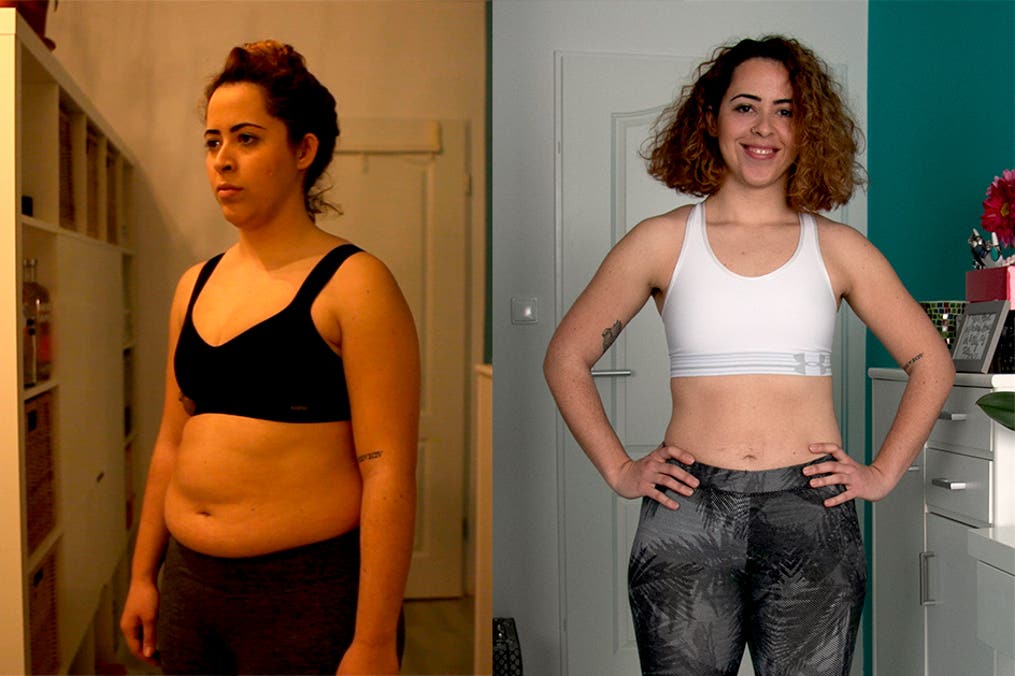When Bilge first started training with Freeletics, she was at an all-time low. Unhappy with her body and struggling with her mental health, she needed something to lift her spirits and make her feel like herself again. This is her story.
“When I first started, Freeletics was the toughest thing I’d ever done.”
My first experience with Freeletics was when some friends in Munich invited me to train with them. I wasn’t athletic at all and, to be honest, I found it really, really tough. The first workout I did was half an Aphrodite and it took me almost three hours.
I stuck with Freeletics for a while, but then the people I trained with moved on, so I lost my motivation. I quickly sank to a serious low. I became unhappy, depressed and gained a lot of weight. I’d never had to deal with such a low point before; it got to a point where I literally couldn’t get out of bed. I started going to the gym regularly, but I didn’t see the results I was looking for, so I became demotivated and even more unhappy with myself.
“On the training ground, we’re all equal.”
One day, I saw a newsletter from Freeletics and it reignited my interest. At this point, I thought I had nothing to lose. I found another training group in Munich and it was inspiring to see the different stories of the people I was training with; everyone had their own challenges and were at different levels, but, on the training ground, we were all equal and could all push each other to go further.
“Hitting start was always the hardest part.”
I quickly came to terms with the fact that I was definitely one of the most unfit people in my training group. I was always among the last to finish and even suffered a few injuries from pushing myself too far and not focusing on technique. But even though it was incredibly difficult, I kept pushing through and when I started to see results, everything felt worthwhile.
I loved to see my times improving and felt a huge rush when I could confidently give myself a star; it was addictive. I learnt to appreciate the smaller achievements in my journey, like when I did my first Jumping Pullup and felt on top of the world! I’d worked so hard to get to this point, so it was a huge sense of achievement. Finally, the time came to do Aphrodite again. To my surprise, I finished the entire workout in just 26 minutes; a lot less than the three hours it had taken me to do just half of it a few months prior! “Wow,” I thought to myself, “if you can make an improvement like this, you can do anything!”
“The training was tough, but looking after my nutrition was even tougher.”
I’d always eaten pretty poorly and I knew this was why I was overweight, but I didn’t know how to change. When I started training with the group, I felt pressure to eat well and I had to learn not to feel guilty about treating myself to the occasional “cheat” food.
My diet changed a lot during my Freeletics journey. I learnt that I could eat enough to be full and still lose weight, it was about making sure to choose the healthier options and cooking for myself rather than ordering takeout. I realized that nutrition is about more than just fuelling your training; when I ate well, my mood improved and I felt so much better in myself.

“Training with a group didn’t just improve my physical health, it improved my mental health too.”
More than any workout, the biggest battle for me was with my mental health. Depression had made it difficult to get out of bed every day and I found that I was constantly fighting the urge to give up. Medication didn’t help; ultimately, the only thing that made me start to feel like myself again was training with the group. Fitness doesn’t have to be a solitary thing; if you train with the right people, you can all achieve more.
The group relied on me to be there everyday; we were in this together and if I didn’t show up in the morning, I was letting them down. Despite how unfit I was and how weak I felt, they welcomed, supported and encouraged me and I learnt how to do the same for them too.
I think it’s so important to keep an open dialogue about the positive effects exercise can have on mental health. It’s easy to pretend it’s not happening, but we all have our individual struggles and, in a lot of cases, exercise can really help. Mental health in sport shouldn’t be a taboo subject and I’m really glad it’s something we’re talking about more and more; it normalizes it and makes people feel less alone. I couldn’t say that exercise is a cure for mental health problems, but, for me, it was certainly the best therapy.